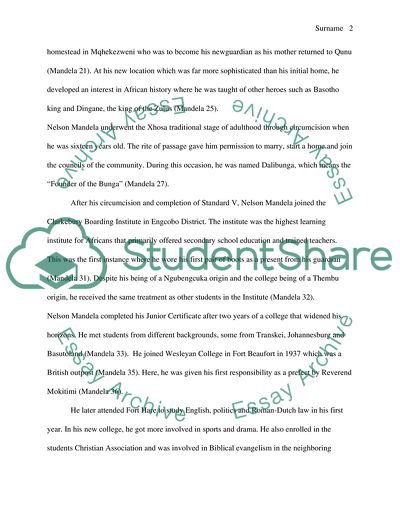Cite this document
(“Long Walk to Freedom: The Autobiography of Nelson Mandela Essay”, n.d.)
Retrieved from https://studentshare.org/literature/1691932-book-review-long-walk-to-freedom-the-autobiography-of-nelson-mandela
Retrieved from https://studentshare.org/literature/1691932-book-review-long-walk-to-freedom-the-autobiography-of-nelson-mandela
(Long Walk to Freedom: The Autobiography of Nelson Mandela Essay)
https://studentshare.org/literature/1691932-book-review-long-walk-to-freedom-the-autobiography-of-nelson-mandela.
https://studentshare.org/literature/1691932-book-review-long-walk-to-freedom-the-autobiography-of-nelson-mandela.
“Long Walk to Freedom: The Autobiography of Nelson Mandela Essay”, n.d. https://studentshare.org/literature/1691932-book-review-long-walk-to-freedom-the-autobiography-of-nelson-mandela.


